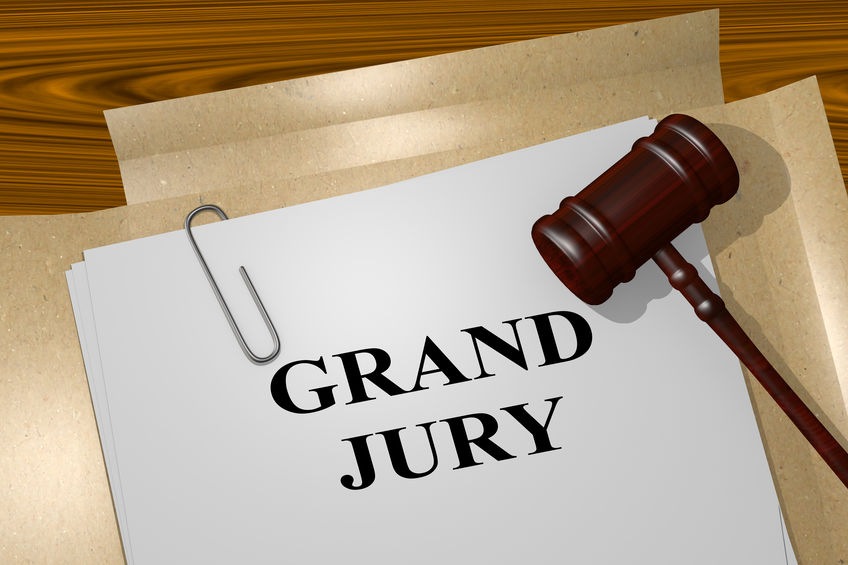




The grand jury serves a very special function in Florida’s criminal courts. The only charge a State Attorney cannot file based on his or her constitutional authority is first degree murder. All first degree murder cases must be presented to a grand jury. In this section you will read an overview of what the grand jury is as well as certain functions of the grand jury. Additionally, you will find investigative reports and indictments by the grand jury.
A grand jury is an investigating, reporting, and accusing agency of the circuit court (or of the Florida Supreme Court in the case of the statewide grand jury). It consists of citizens of a specified number who have been summoned and empaneled by a judge of the circuit court (or by a judge appointed by the Florida Supreme Court, in the case of the statewide grand jury). The grand jury is an agency and an arm of the circuit court (or the Florida Supreme Court in the case of the statewide grand jury) and is uniquely independent.
The grand jury is answerable to no person or agency of government except the court that empanels it and, even then, only to the extent that it may exceed its authority and privileges.
Our constitution provides that no person shall be brought to trial for a capital crime except upon indictment of a grand jury. This means that no one may be prosecuted for a capital crime except by a vote of the grand jury. Except for capital crimes, the state attorney (or the statewide prosecutor) may initiate all other criminal charges. The grand jury of course may indict for any crime that the evidence justifies.
The wisdom of leaving to the state attorney the bringing of charges as to crimes less than capital crimes and traffic violations is readily apparent. If the grand jury was required to initiate the prosecution of less serious crimes through indictment, the grand jury would be so overwhelmed with complaints that it could not perform its more important duties.
Grand jurors are United States citizens and legal residents of this state and their respective counties who are at least 18 years of age and who possess a driver’s license or identification card issued by the Department of Highway Safety and Motor Vehicles, or who execute an affidavit indicating a desire to serve as a juror.
All jurors are selected at random and their names are taken from lists prepared by the clerk of the circuit court.
The process of selecting jurors is done in most counties by the county commissioners and in some counties by a specially constituted jury commission.
When making up the jury list, the officers compiling it are required to select only citizens they believe to be law abiding, and of proven integrity, good character, sound judgment and intelligence, and who are not mentally infirm.
The State Attorney serves as legal advisor to the Grand Jury.
The court in its charge to the grand jury outlined the part that the state attorney will play in assisting the grand jury. The State Attorney will assume responsibility for presenting witnesses and bringing testimony before the grand jury. The State Attorney is a public official and is entitled to the confidence and cooperation of the grand jury.
It occurs sometimes, however, that even the best of advisors may be in error. If a difference of opinion arises between the state attorney and the grand jury and it cannot be resolved amicably, the matter should be brought before the presiding judge for a ruling.
There are two kind of juries: Grand Juries and Petit Juries.
The Grand Jury consists of not fewer than 15 nor more than 21 (or 18 for statewide grand jury) members. A petit jury, depending upon the type of trial, consists of either 6 or twelve (12) members.
The Grand Jury and the Petit Jury have entirely different purposes and functions. A Petit Jury actually tries a case and renders a verdict of guilty or not guilty after hearing both sides. A grand jury does not try a case on the issue of guilt or innocence. The grand jury rarely hears both sides. Its function is simply to hear witnesses as to a charge of crime, by the state, and to determine whether the person, or persons, so charged should be brought to trial. The grand jury has jurisdiction have been set forth for you by the court in its instructions.
It is important to keep in mind that no individual should be unjustly criticized or held up to scorn or public resentment, particularly when it is remembered that the individuals who may be criticized had no opportunity to defend themselves or give reply to the charges. A Grand Juror must keep in mind that the grand jury is the ultimate instrument of justice and should never be subverted to become the vehicle for harassment or oppression.
At least two terms of court are held each year and once the grand jury is empaneled, it will serve for the balance of the term of court. In exceptional cases, its term may be extended. (The statewide grand jury’s term is for a period of 12 months, but may be extended for up to 18 months.) The grand jury will not be in continuous session but will be called in from time to time as necessary.